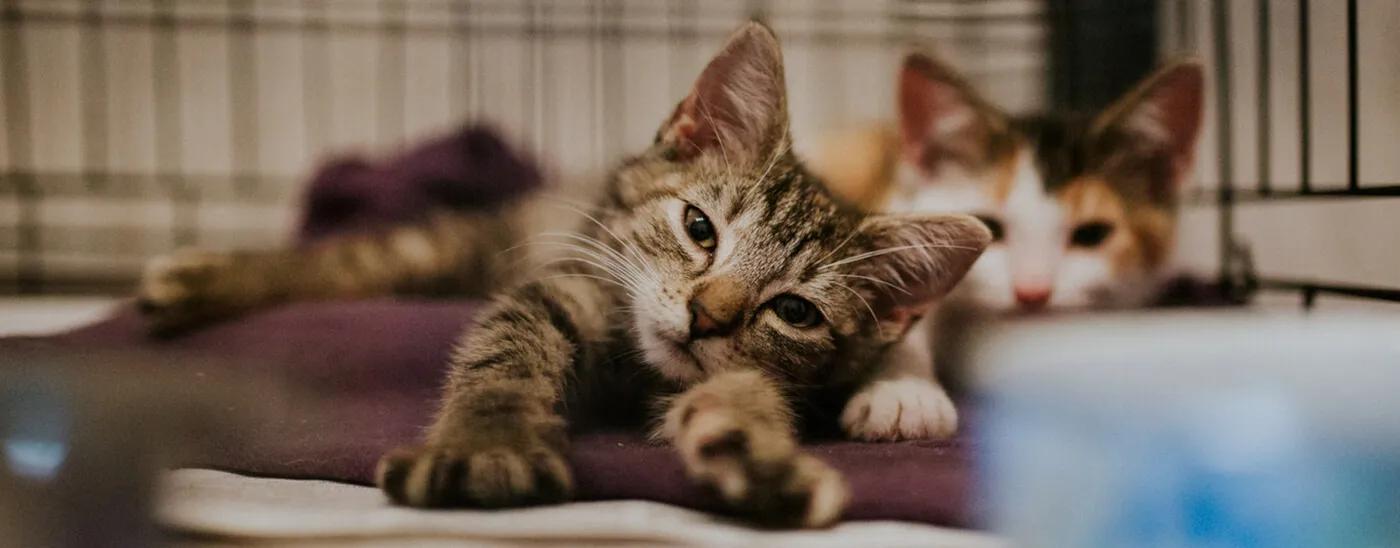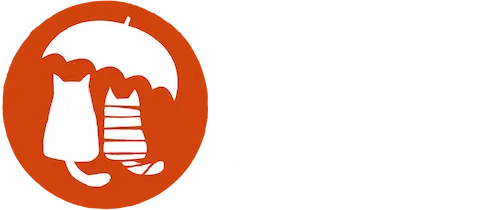Duty of care
Animal Protection Act
The document that regulates the legal rights of animals in Poland, including cats, is the Act of August 21, 1997 on the protection of animals. The Act guarantees free-roaming cats the possibility of living in the places where they were born and reside. This means providing them with areas where they can protect themselves from the cold and danger, as well as the possibility of being fed.
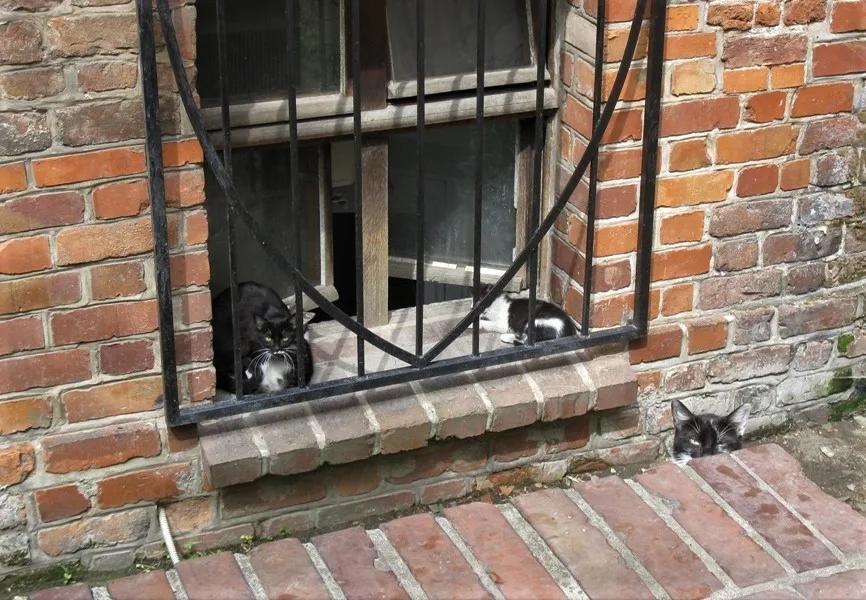
The Protection of Animals Act is a document that supersedes the regulations, statutes, resolutions of various bodies in the city of Wroclaw, such as the management of garden allotments, the administrators of a multi-family buildings. It is against the law to forbid feeding of free-roaming cats, completely preventing them from access to cellars, demanding that cats be removed from the premises or placed in shelters!

Communal Care Program
The Council of Wrocław implements the statutory obligations to establish local regulations regarding homeless and free-roaming animals. Each year, the City Hall prepares the Homeless Animal Care Program and addresses homelessness of animals in the Wrocław Province.
The Program proposal is published on the website of the Councill and is the subject of the so-called public consultation - this means that every private person or organization has the right to submit their comments or recommendation for consideration within the prescribed period. The final version of the Program comes into force pursuant to the Resolution of the Wrocław City Committee.
Free-roaming cats
Majority of the cats outside are free-roaming cats, i.e. those born outdoors and usually residing within their territory.
asking for help from Animal Patrol
You can also ask for help from one of the animal-friendly organizations in Wrocław, but remember that they are constantly overcrowded with animals and have admission limits.
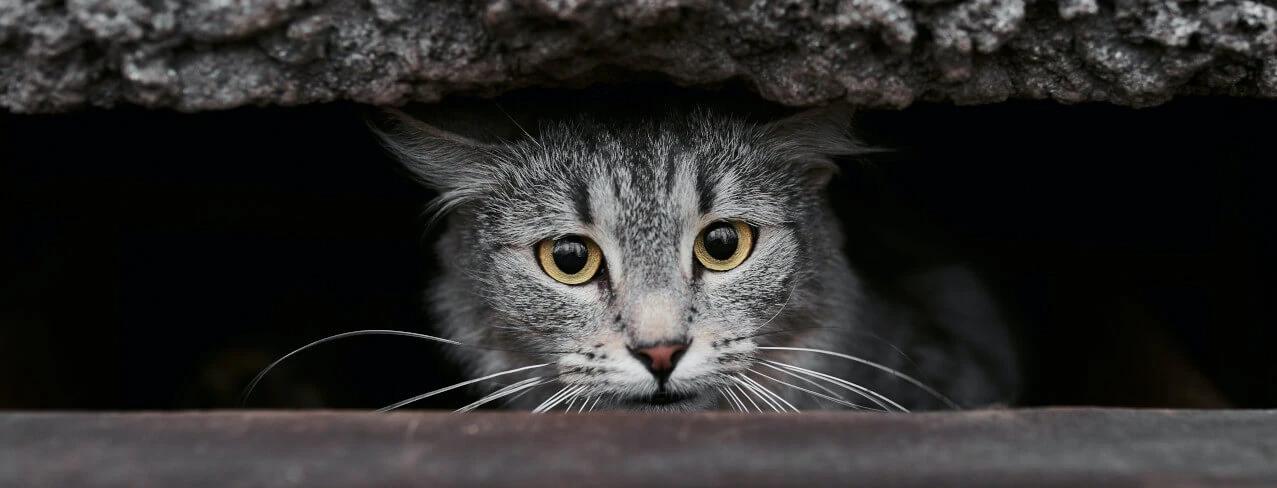
Accident victims
Animals in the city are often victims of traffic accidents, disease, hunger or aggression on the part of humans. If you find a carcass of a cat or any other animal, please report it to the appropriate services.
and common areas
Finding a carcass of an animal in an area under the management of an institution or company should be reported to the manager or owner of the area or property.
Warning! If you find a cat corpse from a known herd - you feed, neuter, etc. - and you have reason to suspect that the cat has been the victim of a person’s act (ie. occupant of the estate, neighbour, allotment farmer etc.), for example, as a result of poisoning, secure the corpse and contact the shelter. The shelter is able to perform an autopsy to confirm or deny your suspicions of the cause of death.
A shelter
There is a shelter for homeless animals in Wroclaw. It is run by the Animal Care Society under an agreement with the Wroclaw Council. The shelter can accommodate approximately 200 cats simultaneously.
But remember that the shelter is the last resort for a domesticated cat! Many animals become depressed which, sometimes results in death, and are exposed to the risk of fatal viral diseases. Do whatever you can to ensure the animal in need is placed in a home-like environment: ask your friends, family, advertise a cat!
If you are trying to catch a cat on your own and you are unsuccessful, you can turn to the shelter for help! It is mentioned in the Municipal Animal Care Program. If possible, the shelter may also facilitate sterilization and keep the cat after the procedure.
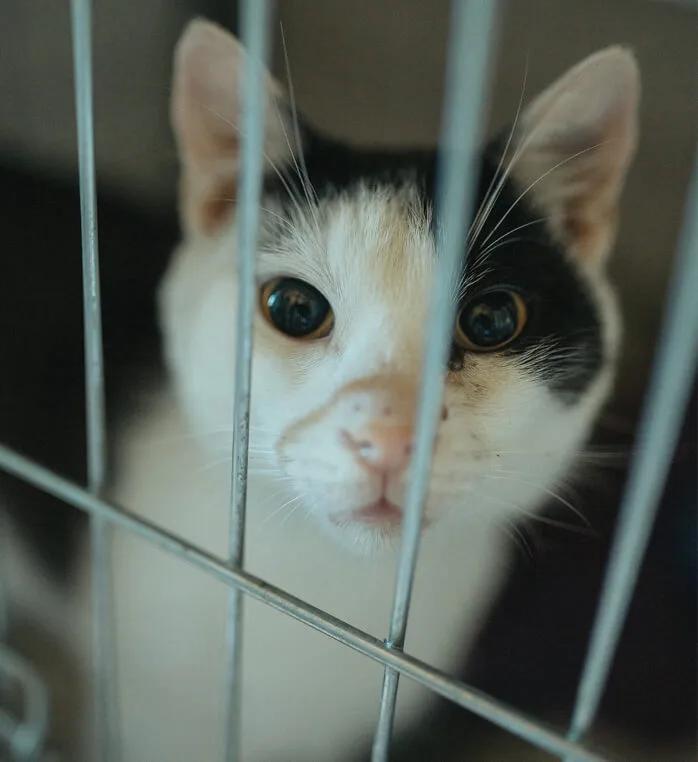
Your and your cats’ safety
Problems encountered while caring
If you experience unwarranted problems whilst caring for free-roaming cats, such as:
- demands to remove or relocate the animal(s)
- threats against you or the cats
- barricading of the basement entrance preventing cat access
- eliminating feeding station(s) by order of the property manager
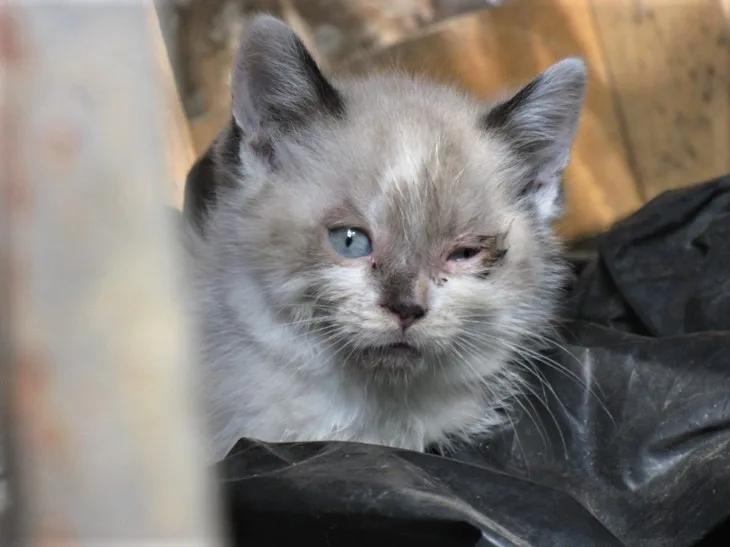
Remember - you are not doing anything wrong! It is the person or party who attacks you, who does not know the law and is unaware that it is not your, but their actions that should be condemned and - in justified cases – resulting in resulting in dire consequences!
Criminal and Civil Code
Any behaviour on the part of another person, such as: poking, pushing, grabbing contents from one’s hand, waving with a fist, etc. is a form of aggression, which in the light of the law represents a threatening situation to someone's health or life.
Civil Code in art. 23 contains a list of personal rights that are protected by civil law. Health comes first!
Criminal law also deals with the protection of personal rights. The Criminal Code in articles 212 to 217 defines offences against honour and physical integrity.
If you are concerned about your safety or health, you can:
997 or 112
your local police station or directly your neighborhood police station
To expedite fastest possible intervention, inform the person concerned that it is a health emergency.
Wrocław Without Barriers
Coordination of activities related to homeless and free-roaming animals is carried out by the Wrocław Bez Barier Office of the Wroclaw Council. If you experience regular difficulties in caring for cats, you (or the cat) are a victim of attacks, contact the spokesperson for DS Animals and ask for help.
To assist you in your endeavours, you can download and show to the "persecutors" a document (in Polish)
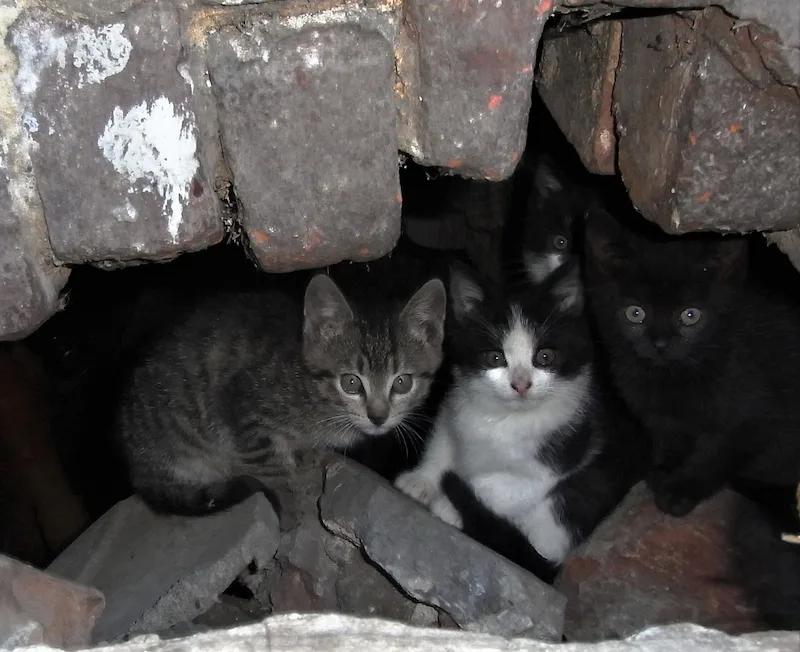
Local Municipality Offer of Help
Coupons for neutering cats
Every year, Wrocław shelter for homeless animals allocates a budget for special Coupons for free-roaming cats, commonly known as coupons. The animals can undergo treatment in several clinics selected by tender (their addresses can be found on the card). Every year, over 2,000 such cards are issued to the inhabitants of the District.
The card can be obtained by any resident of the Wrocław Region who plans to neuter a cat living in the Wrocław area. One person may receive a maximum of 2 cards at a time (once a month). Cards are issued at the shelter at the beginning of each month. The exact dates are published on the shelter's website.

- have an ID card,
- provide your personal details,
- identify the location (street, name of the area, facility)where the catyou intend to neuter resides.
At this point the District’s participation in the reduction of the city’s cat population ends. You become responsible for the trapping, transporting and - most importantly – providing care during the cat’s convalescing period.
Occasional help in catching or keeping a cat after surgery can be provided by shelter or animal organisations.
Dry cat food
Every month, the shelter in Wrocław provides dry food to cat carers, the purchase of which is financed by the Wrocław Regional District under an agreement with the shelter. You should contact the shelter to become eligible and learn if and when it will be feasible. You will then be entered on the list of feeders in Wrocław. The amount of food allocated to you depends on the number of cats under your care.
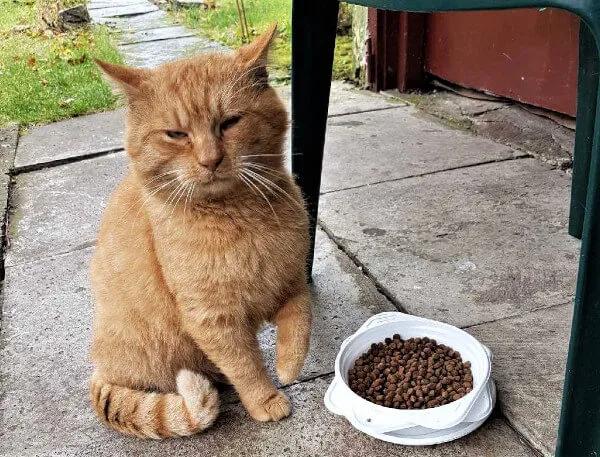
Cat Carer Card
If you regularly look after a group of free-roaming cats in your district, you are eligible to obtain a social welfare card from the City Hall.
Considering the various difficulties often associated with feeding cats in Wrocław, we urge you to do so! Official authorization of your involvement in caring for homeless animals reinforces the legitimate nature of your actions, especially to "vocal neighbourhood critics" or property managers with an unfavourable attitude to cats.
How to obtain such a document? It's very simple. Just send an email to malgorzata.szewczyk@um.wroc.pl stating:
- your full name,
- ID card number,
- the address, where "your" cats are located.
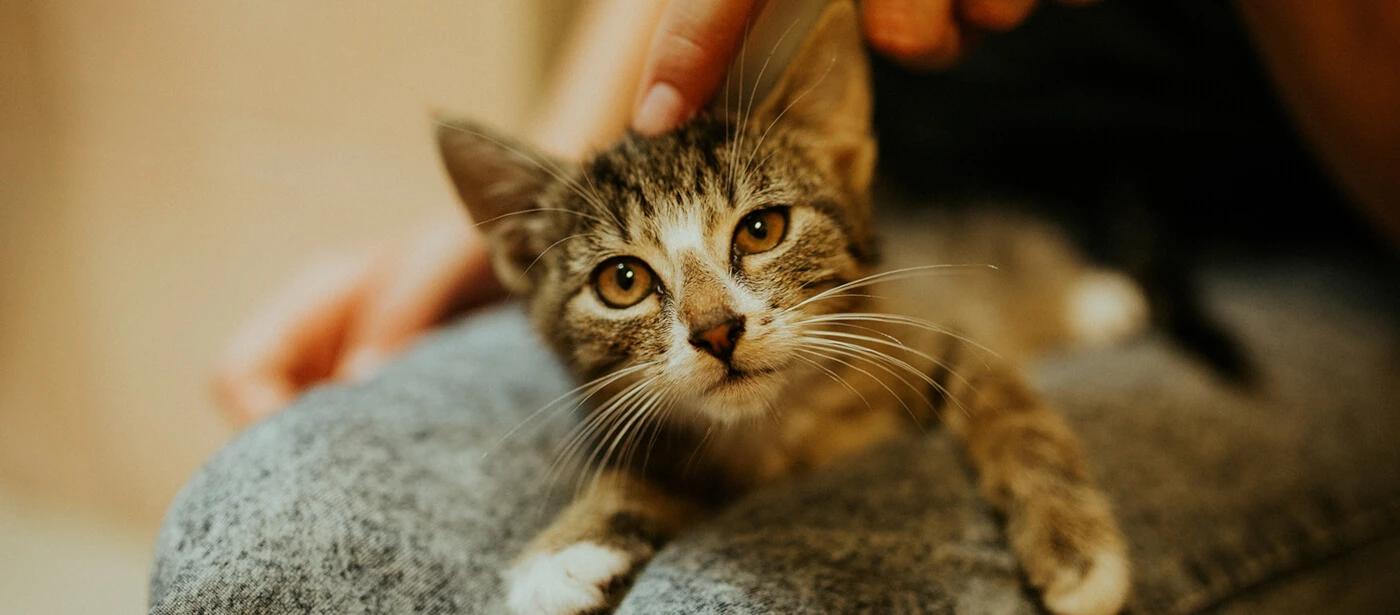
Local pro-animal NGOs
There are over a dozen non-governmental organisations and informal groups in our city, whose aim is to help animals, including cats. We also help cats, their guardians or any community residents who find a cat in need. Remember that we operate in very challenging conditions and our ability to help is limited.
Every day we find new cats to be placed SOMEWHERE. Every day we receive applications, requests to accept or rescue more cats. We constantly look after several cat groups in the city, which also include sick or new cats that require protection and care. We are not able to accept them all... but you can also help!
If you come across a cat that needs to be taken "off the street" remember that you can also take it home! The housing conditions of the foundation's volunteers are not only not better than yours, but often much worse! Most of us have about 5-10 cats at a time!
Warning! Remember, however, that once the cat is rescued, its welfare should be guaranteed, and as such it is your responsibility - so conduct a telephone interview with the potential cat guardian(s) and ask about fencing of the window or balcony.
If you are able to provide a temporary home for a cat in need, but feel that its treatment or process of re-homing is too overwhelming, you can turn to the foundation for help.
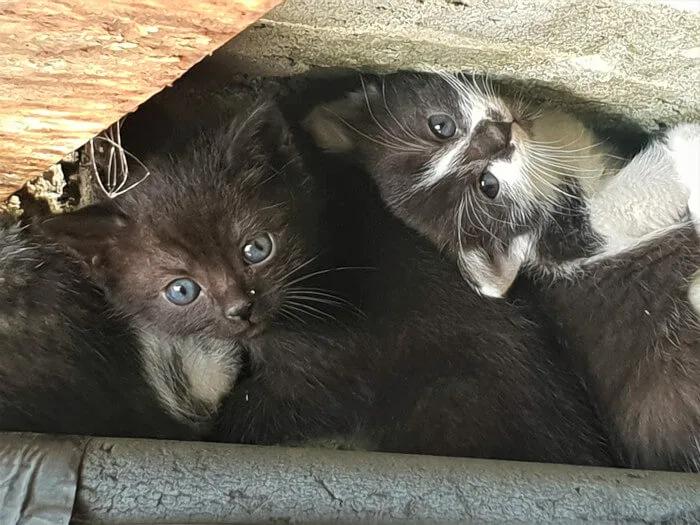
Aid costs
Every zloty counts! The cost of treatment, veterinary treatment, cat food and litter for around 100 cats a month in Koci Zakatek is enormous. In 2020, we spent 229 475,37 zlotych for our statutory actions. See the details in our financial report (in Polish).
Despite the large number of animal-friendly organisations and such an overwhelming expenditure required to support the welfare of free-roaming animals, the Wrocław Council allocates just PLN 30,000 per year to support the needs of all potential beneficiaries, which are distributed very fast at the beginning of the year.
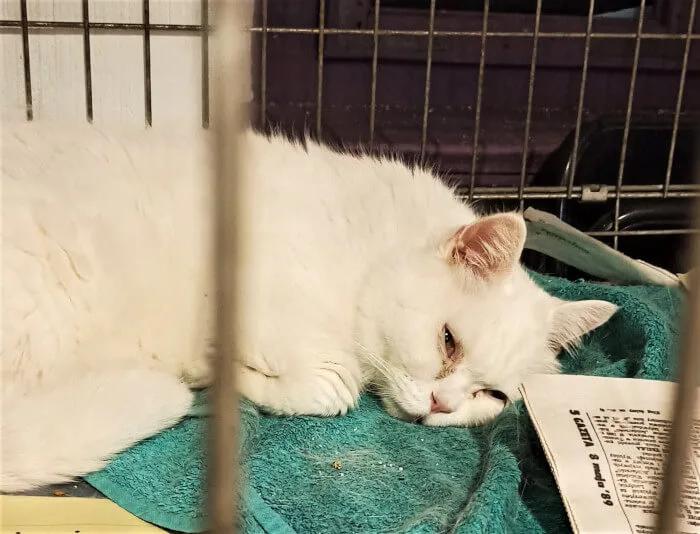
Unfortunatelly Wroclaw funds in annual budget do not include allowance to conduct some open competitions for NGO, which could have provided them wit more money for their vast needs.
Our activities are possible mainly thanks to wonderful selfless people who allocate annually 1% tax deduction to our Foundation and make donations throughout the year to cover our expenses ensuring our ongoing commitment to this honourable cause.
Do you also want to help cats in Wroclaw?
See how much you can do for them, even from your home!
